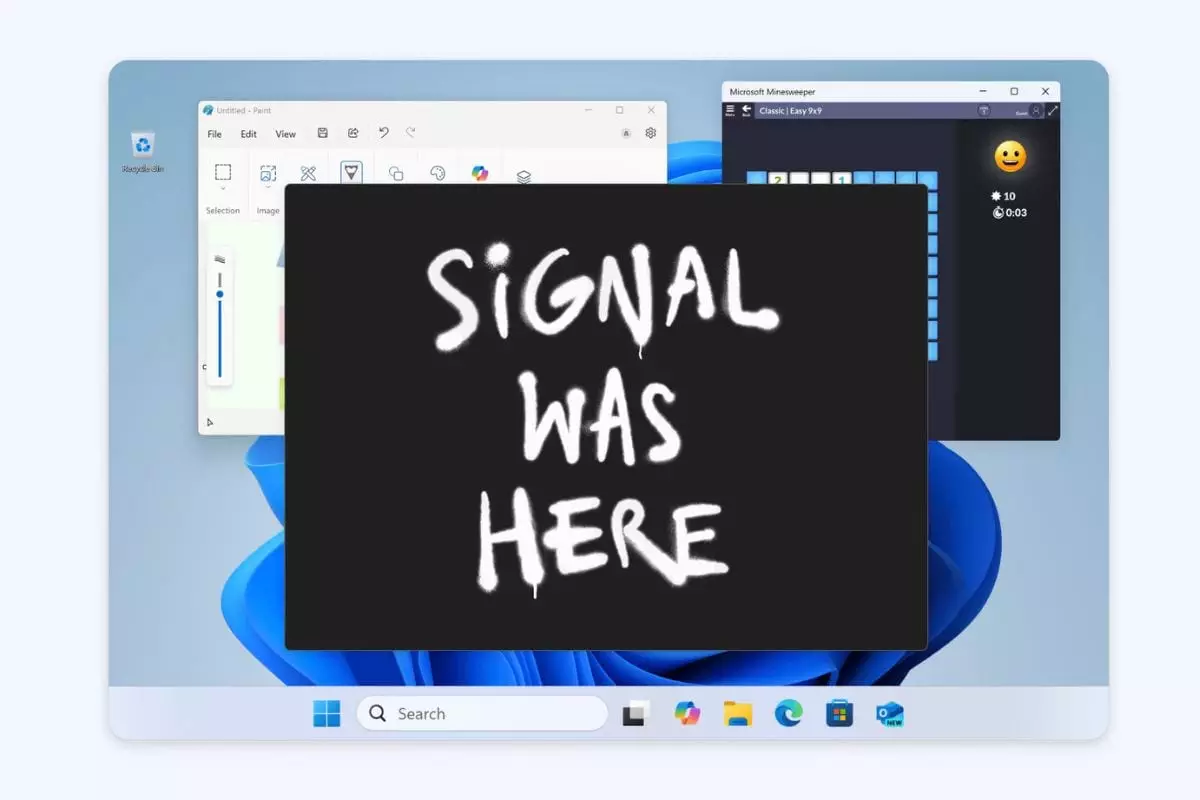In an era dominated by rapid technological advancements, privacy concerns are at an all-time high. Signal, the messaging platform revered for its commitment to user privacy, recently unveiled a game-changing feature in response to Microsoft’s controversial Recall functionality. As major tech corporations aggressively embrace AI capabilities, they often overlook the privacy implications for users, a fact Signal refuses to ignore. The introduction of Screen Security isn’t just a feature—it’s a critical safeguard borne out of necessity, highlighting the challenges faced by developers dedicated to user privacy in this digital age.
Understanding Microsoft’s Recall Feature
Microsoft’s Recall was initially positioned as an innovative tool, leveraging artificial intelligence to help users keep track of their activities via in-device screenshots. It was launched as an intelligent assistant, designed to improve user experience. However, this advancement came with significant backlash from security advocates concerned about the implications for user privacy. With Recall continually capturing what users do, the line between helpful AI and invasive monitoring has blurred, prompting the question—should user convenience come at the cost of privacy?
Microsoft’s handling of this technology has raised eyebrows across the tech community. The transition of Recall from an opt-out feature to an opt-in capability in response to criticism is a move that many view as a belated acknowledgment of privacy concerns. Yet, developers like Signal find this insufficient, as Microsoft has not provided adequate tools to restrict access to sensitive information within applications. This glaring oversight necessitated Signal’s drastic measure to enact protection for its users.
Signal’s Innovative Defensive Strategy
In light of the impending threat posed by Recall, Signal’s response with the Screen Security feature serves as an assertive statement against unchecked technological intrusions. By implementing a Digital Rights Management (DRM) system akin to that used by streaming giants, Signal aims to prevent unauthorized screenshotting of conversations. This move not only places user privacy first but also directly challenges Microsoft’s oversight of its own systems.
This feature will be activated by default on Windows 11, reflecting Signal’s determination to not only protect its user base but to set a precedent for privacy-first design in messaging applications. However, while the introduction of Screen Security is a commendable step forward, it bears potential drawbacks—particularly for users who rely on accessibility features, such as screen readers. Balancing privacy and accessibility is a complex issue that requires thoughtful consideration, and Signal has acknowledged this dilemma. Users are given the option to disable the feature, but the accompanying warning starkly reminds them of the privacy risks involved.
Implications for Developers and Users
Signal’s bold action underscores a larger conversation about the responsibilities of tech companies in ensuring user privacy amidst the growing prevalence of AI technologies. As AI capabilities mature, the need for robust developer tools becomes ever more critical. Signal’s critique of Microsoft’s development approach calls attention to the necessity for system-level permissions that safeguard sensitive data. Instead of nimble fixes, there should be a comprehensive framework allowing developers to shield user information effectively.
Moreover, Signal’s stance reflects an urgent need for dialogue about how AI technologies are integrated into everyday applications. Users who value privacy should not have to navigate treacherous waters where their data could be captured without consent. As AI becomes an integral part of our lives, developers must prioritize creating solutions that not only enhance functionality but also respect the sanctity of personal data.
The Future of Privacy in a Digital-First World
As we navigate this rapidly changing digital landscape, the tug-of-war between convenience and privacy will only intensify. Signal’s proactive measure serves as a reminder to all tech companies that user-centric privacy protections must be a foundational element of digital innovation. The need for an informed and aware user base is crucial; individuals must understand the implications of the tools they use daily.
Ultimately, Signal’s courage to challenge powerful entities like Microsoft sets a tone for what the future of privacy may look like. It amplifies a crucial message: that privacy is not merely a feature but a requirement. As artificial intelligence continues to permeate our lives, ensuring that privacy considerations keep pace with innovation will be imperative for a trustworthy digital environment.

